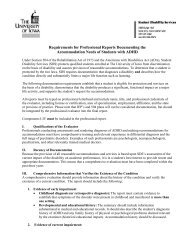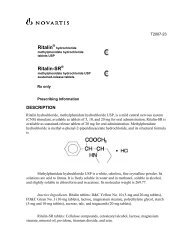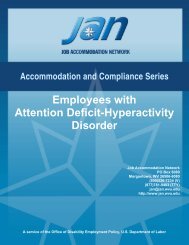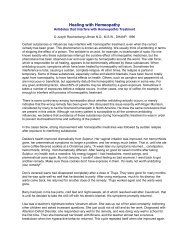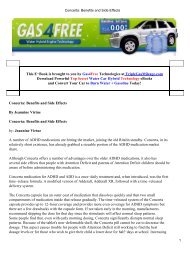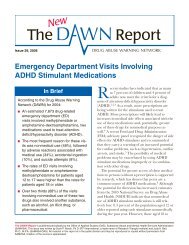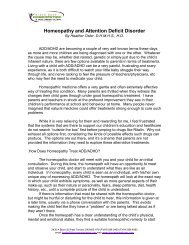Documentation Requirements for Attention ... - ADHD Info Centre
Documentation Requirements for Attention ... - ADHD Info Centre
Documentation Requirements for Attention ... - ADHD Info Centre
You also want an ePaper? Increase the reach of your titles
YUMPU automatically turns print PDFs into web optimized ePapers that Google loves.
The diagnostic interview with in<strong>for</strong>mation from a variety of sources should include, but not<br />
necessarily be limited to, the following:<br />
• history of presenting attentional symptoms, including evidence of ongoing<br />
impulsive/hyperactive or inattentive behavior that has significantly impaired functioning<br />
over time;<br />
• developmental history;<br />
• family history <strong>for</strong> presence of <strong>ADHD</strong> and other educational, learning, physical, or<br />
psychological difficulties deemed relevant by the examiner;<br />
• relevant medical and medication history, including the absence of a medical basis <strong>for</strong> the<br />
symptoms being evaluated;<br />
• relevant psychosocial history and any relevant interventions,<br />
• a thorough academic history of elementary, secondary, and postsecondary education-,<br />
• a review of prior psychoeducational test reports to determine whether a pattern of strengths<br />
or weaknesses is supportive of attention or learning problems;<br />
• relevant employment history ;<br />
• description of current functional limitations pertaining to an educational setting that are<br />
presumably a direct result of problems with attention, and<br />
• relevant history of prior therapy.<br />
Alternative Diagnoses or Explanations Should Be Ruled Out<br />
• The evaluator must investigate and discuss the possibility of dual diagnoses and alternative or<br />
coexisting mood, behavioral, neurological, and/or personality disorders that may confound the<br />
diagnosis of <strong>ADHD</strong>. This process should include exploration of possible alternative diagnoses<br />
and medical and psychiatric disorders as well as educational and cultural factors affecting the<br />
individual that may result in behaviors mimicking an <strong>Attention</strong>-Deficit/Hyperactivity Disorder.<br />
• Medical disorders may cause symptoms resembling <strong>ADHD</strong>. There<strong>for</strong>e, it may be important to<br />
rule out Neuroendocrine disorders (e.g., thyroid dysfunction), Neurologic disorders, as well as<br />
other disorders, and impact of medication on attention if tried, and under what circumstances.<br />
3. Relevant Testing In<strong>for</strong>mation Must Be Provided<br />
Neuropsychological or psychoeducational assessment is important in determining the current<br />
impact of the disorder on the individual's ability to function in academically related settings.<br />
The evaluator must objectively review and include with the evaluation report relevant<br />
background in<strong>for</strong>mation to support the diagnosis. If grade equivalents are reported, they must



